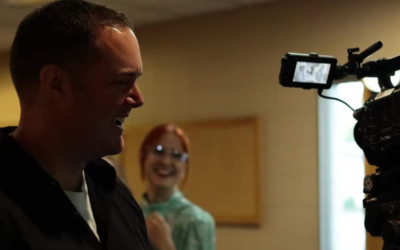“Can I touch you here?”
During an intimate experience with a partner, this statement quietly stunned me. There were so many different things I could be feeling at this moment, but I felt nothing but surprise for a few seconds. It was the first time a romantic partner had asked permission to touch my body during sex. I felt seen.
When I graduated high school in 2013, I did not completely understand consent. Even in middle school, wearing tight pants meant risking a slap on the ass from the boys in my grade. My Facebook messages were full of boys expecting me to reciprocate their aggressive attempts at courtship. It wasn’t uncommon for naked photos of girls at school to be spread from flip phone to flip phone. Many of my peers were having sex, and everyone’s sex lives became subject to school gossip.
“Can I rape you?”
When I was 16, a boy I was dating said this to me jokingly. Earlier that day, my dog had died, and he was attempting to coerce me into having sex with him. He said it would “make me feel better.” By then, I was good at pretending to like this kind of behaviour. Unwilling participants of this culture were slapped with the label “frigid,” a term coined by the boys at school to determine which girls were worth pursuing. Looking back at my experience as a young person, I wonder if there was ever a time when I felt complete control over my body or how others perceived me sexually.
In 2015, only 33 per cent of Canadians fully understood consent, according to a study by the Canadian Women’s Foundation. Movements like #MeToo have helped improve today’s culture around consent and sexual autonomy, and I have hope that young people today experience less of the things I did growing up. Unfortunately, we still have a long way to go.
According to a 2022 study by The Canadian Women’s Foundation, 55 per cent of Canadians are confused about consent. Canadian law states that consent should be positive and ongoing – meaning that there should be actions of mutual initiation, clear indicators of “yes,” and enthusiasm when it comes to intimacy. All these actions should continue throughout the interaction. Only 45 per cent of Canadians agreed they would need both positive and ongoing indicators from their partner for intimacy to be considered consensual. Nearly half of Canadians not understanding consent indicates a more significant societal issue, proven by influencers and celebrities being called out for predatory behaviour far too often. But these instances of allegation can actually teach us something: where to start when it comes to understanding the meaning of consent.
Situations like Andrew Callaghan’s, a YouTuber and independent journalist, can reveal some of the misconceptions about consent that still need to be fixed. At the beginning of January 2023, Callaghan was accused of sexual harassment and coercion by multiple women. In an apology video posted on Instagram, he said, “I want to have a more nuanced and important conversation about power dynamics, pressure, and coercion … For a long time, I thought I was behaving in a way that I actually thought was normal. I thought that going home from the bar alone made you a loser. I thought that persistence was a form of flattery and I thought that at first if someone was reluctant, they’re playing hard to get – just try harder.”
Callaghan’s comments reflect our society’s muddled views on consent. To him, his actions felt commonplace in a world where chasing and badgering someone to date you is seen as a romantic pursuit. Callaghan brought up the men who defended his behaviour, recognizing that acting like a “sex pest” is normalized when it shouldn’t be. Many people have experienced unwanted sexual advances from another person. The actions of a high-profile figure, like Callaghan, will be publicized, but behaviour like this happens between ordinary people so often that it usually goes unreported and unchanged.
“This happens as a consequence of the ways that everyone is taught on how gender dynamics are supposed to work, even though it is literally wrong. It is a product of the patriarchy, it is social conditioning and also on top of that, you pile on the gray nature of interpersonal communication and dynamics … [Callaghan’s behaviour] is not uncommon,” said Twitch streamer and political commentator Hasan Piker in response to the allegations. As Piker argues, Callaghan’s actions were wrong, but they are a symptom of a flawed formative education–the same one that taught my high school boyfriend that the normal reaction to my need for comfort was to make a rape joke.
According to a 2019 study by Action Canada, 57 per cent of young Canadians said they did not learn where to get tested for an STI, 52 per cent did not learn where to get emergency contraceptives, 38 per cent did not learn how to access free condoms and 47 per cent did not learn where they can get birth control. Some schools even fail to teach students about their own body parts, as stated by a participant in the State of Sex Ed in Canada study:
“My sex-ed was a failure. I didn’t learn about body parts and their proper names. I never learned about bad touches and that people I know can hurt me too. I never learned about what to do or who to tell if someone abused me. I never learned that I have a right to my own body and a right to say no. I never learned it was ok to have a different sexuality or gender identity. I never learned about how to communicate and respect boundaries. I never learned how to support my friends or family if they experienced sexual or domestic violence. I never learned how to respond to rejection. I never learned that sex shouldn’t or doesn’t have to hurt. I never heard about reproductive control, like birth control and abortion. I was left to my own devices, many of which were unreliable, biased, and inaccurate, in learning about these topics,” said a 24-year-old from Calgary who participated in the study.
If young people in Canada do not even learn about their own body parts in their school’s sex education programs, how can they be expected to know about healthy sexual relationships, boundaries and consent – on top of being constantly exposed to unhealthy societal expectations and gender norms in the media? If someone does not know how to recognize their own personal boundaries, how can they empathize with others in intimate situations?
My formative school experiences were of many well-liked boys exhibiting “sex pest” behaviours. It was so normal that I didn’t know it was wrong, let alone how to speak up for myself. As an adult, I learned about coercion and consent through positive role models, friends and healthy relationships. I was lucky. Too many people look back at similar experiences and still think, “This is normal.”
Callaghan’s actions, and many others like his, exemplify how adults who didn’t learn about consent carry this behaviour to their personal, career or university life. NAIT’s Gender Based and Sexual Violence Prevention and Response Policy defines consent as: “A voluntary agreement to engage in a behaviour or activity. This is an active, direct, voluntary, unimpaired, ongoing, reversible, and conscious choice and agreement between individuals engaging in the behaviour or activity. Consent cannot be obtained through the abuse of a position of power, trust, or authority.”
It bears repeating: consent cannot be obtained through the abuse of a position of power, trust or authority.
For consent to be universally understood, we need to change to a culture of care. One that recognizes empathy and openness around sex and consent instead of fear and shame. It should start as early as childhood – whether it’s kisses from parents, hugs from family members or forced interactions with strangers, children need to be taught that their body is theirs and theirs only. Education is the starting point to avoid situations that happen too frequently in this world, where supposed blurred lines lead to violations of boundaries and body. Education will help future generations understand consent in all its different forms, leaving a little more room for empathy in a world that could really use some.





